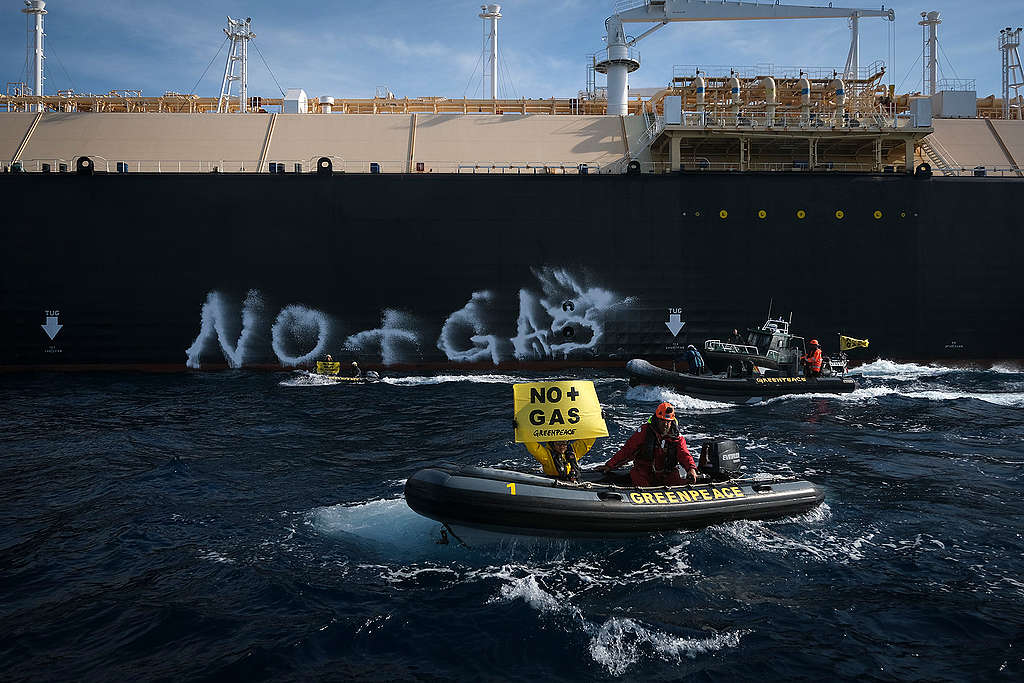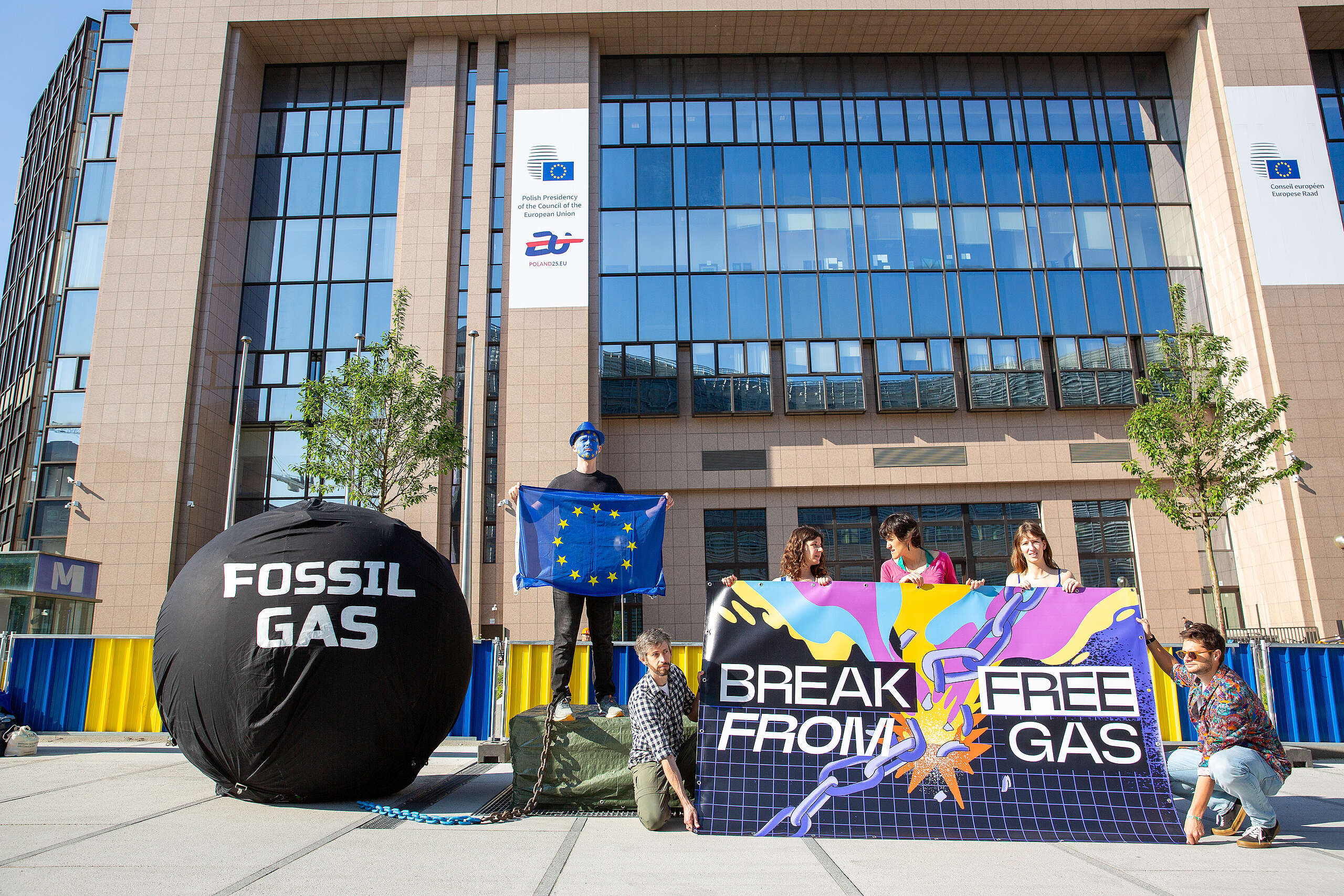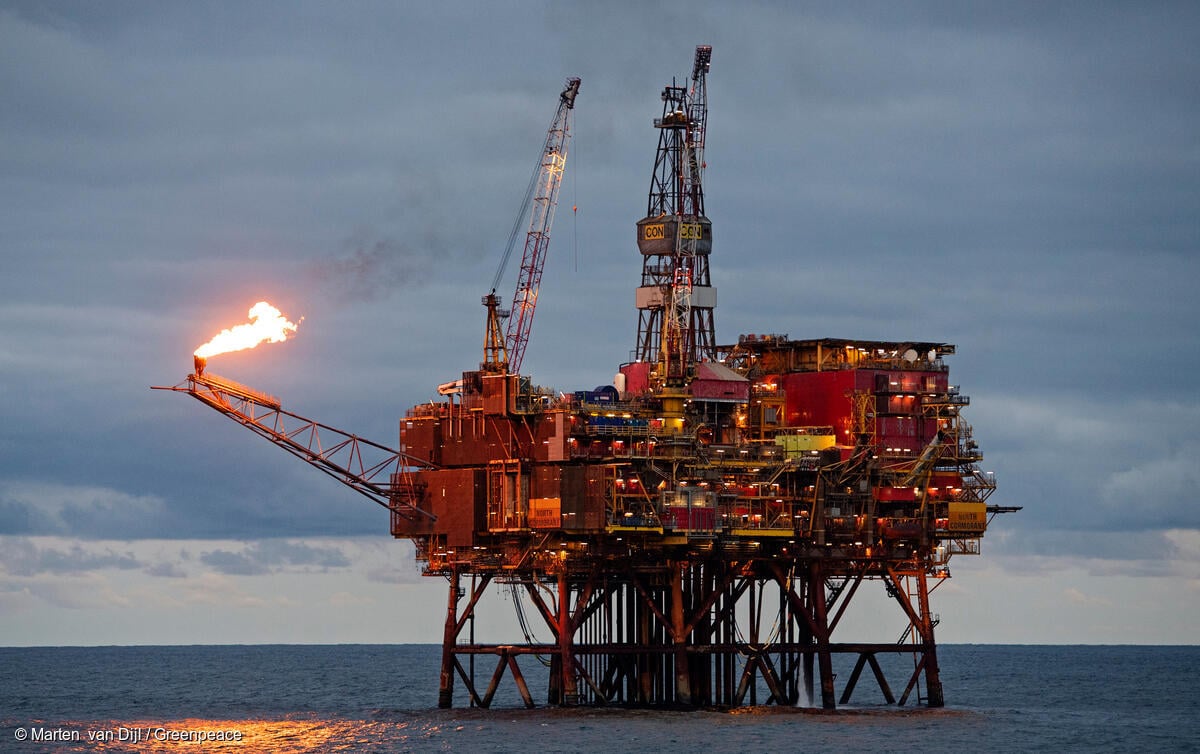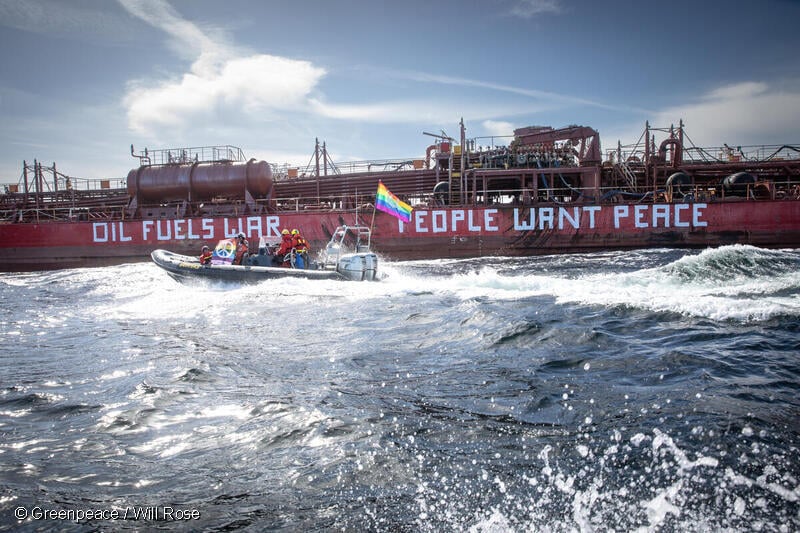
Greenpeace calls for protection of vulnerable households as winter approaches
Brussels – Activists on board Greenpeace’s ship The Esperanza and on inflatable boats are blocking the entrance of Sagunto Port in Spain, preventing a ship loaded with liquefied fossil gas from entering. The peaceful protest comes as an extraordinary meeting of European energy ministers takes place in Luxembourg, where they are to discuss the impact of rising energy prices and possible solutions. Activists from 18 different countries blocking the port are carrying banners with the messages “Gas is sinking our future” and “NO GAS”, in protest of the EU’s over-reliance on fossil gas, which has led to rising energy prices.
High-quality images and video free to use here
Greenpeace is calling on EU energy ministers to protect vulnerable people hit by energy price spikes caused by volatile gas, and to speed up the phase-out of all fossil fuels, including gas, to avoid future crises.
Greenpeace EU climate and energy campaigner Silvia Pastorelli said: “European households are faced with a crisis not of their own making – energy bills are skyrocketing because governments, the EU and energy companies have doubled down on volatile fossil gas. Energy ministers’ first priority must be to protect the vulnerable this winter, making sure no one has to choose between heating and eating, but they must learn a lesson for the future too. Only a swift move to 100% renewable energy, and energy savings by renovating buildings, will stop a repeat of the energy crisis and tackle the climate emergency.”
So far in 2021, 19% of the EU’s electricity has been produced using fossil gas, meaning that electricity prices are very exposed to changes in gas prices. Such reliance on fossil gas has left Europe vulnerable to increases in demand elsewhere such as Asia or Latin America, or supply not rising to meet demand, for example in Russia.
Gas is the fastest-growing fossil fuel in the world and has become the second biggest source of fossil energy in Europe. Fossil gas consists of over 80% methane, which has a global heating effect 84 times more powerful than carbon dioxide over 20 years. As the extraction, transport, storage and use of fossil gas inevitably leads to methane leaks, it has an overall contribution to climate change that is comparable to coal.
Contacts:
Silvia Pastorelli, Greenpeace EU climate and energy campaigner: +32 496 12 20 94, [email protected]
Greenpeace EU press desk: +32 (0)2 274 1911, [email protected]
For breaking news and comment on EU affairs: www.twitter.com/GreenpeaceEU
Greenpeace is an independent global campaigning network that acts to change attitudes and behaviour, to protect and conserve the environment and to promote peace. We do not accept donations from governments, the EU, businesses or political parties. Greenpeace has over three million supporters, and 26 independent national and regional organisations with offices in more than 55 countries.
EU Transparency Register: 9832909575-41



